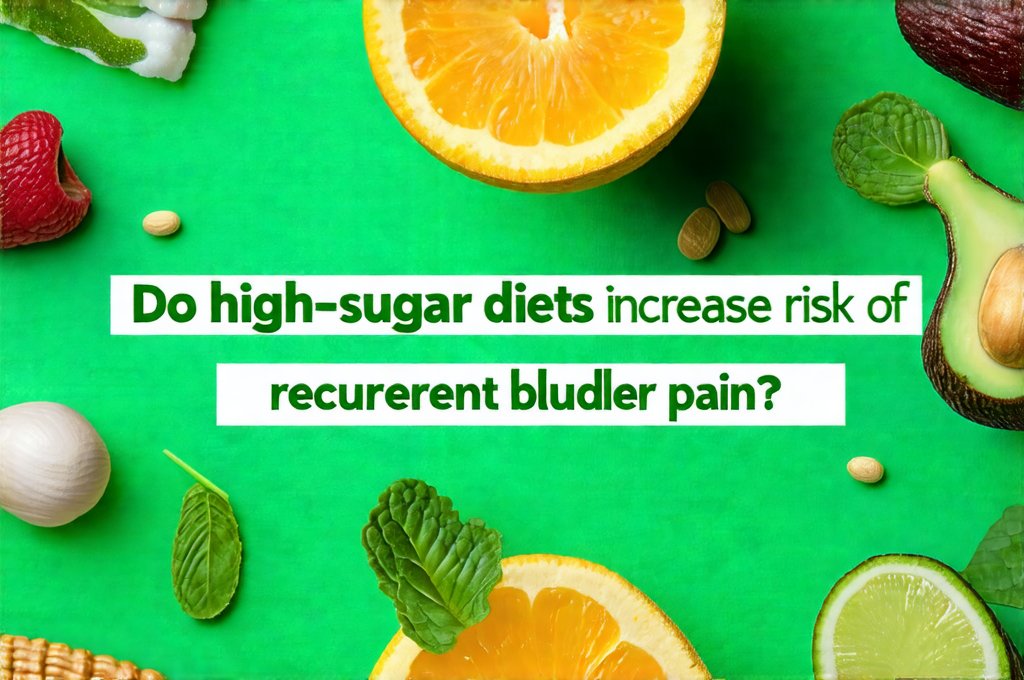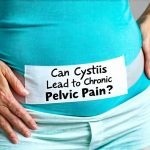The prevalence of chronic bladder pain, often referred to as interstitial cystitis/bladder pain syndrome (IC/BPS), is steadily increasing, posing a significant challenge for both patients and healthcare professionals. This complex condition manifests as persistent discomfort, pressure, or pain in the pelvic region, frequently accompanied by urinary frequency and urgency. While the exact etiology of IC/BPS remains elusive, accumulating evidence suggests a strong interplay between genetic predisposition, immune dysregulation, neurological sensitization, and environmental factors. Dietary habits, particularly those rich in sugar, are emerging as potential contributors to disease exacerbation or even initiation, prompting investigation into the link between high-sugar diets and recurrent bladder pain.
Understanding this connection requires exploring how dietary sugars impact inflammation, gut microbiome composition, and overall systemic health, all of which can influence bladder function and sensitivity. The modern Western diet is characterized by excessive sugar intake, often in the form of processed foods, sugary beverages, and refined carbohydrates. This constant influx of glucose not only contributes to metabolic disorders like obesity and diabetes but also triggers chronic low-grade inflammation throughout the body. Furthermore, sugars feed specific types of bacteria within the gut microbiome, potentially disrupting its delicate balance and leading to increased intestinal permeability – often referred to as “leaky gut” – allowing inflammatory molecules to enter the bloodstream and contribute to systemic immune activation. This cascade of events can ultimately impact bladder health and exacerbate symptoms in individuals susceptible to IC/BPS. Understanding how to manage potential triggers like dietary irritants is vital, and resources on foods that minimize the risk of bladder irritation can be helpful.
Dietary Sugar and Inflammatory Pathways
The link between high-sugar diets and increased inflammation is well established. When we consume sugars, particularly refined sugars like sucrose and fructose, they rapidly increase blood glucose levels. This triggers a cascade of hormonal responses, including the release of insulin. Over time, chronic sugar consumption can lead to insulin resistance, where cells become less responsive to insulin’s signals, requiring even more insulin to maintain normal blood sugar levels. Elevated insulin levels promote inflammation through several mechanisms. Firstly, they activate inflammatory pathways such as NF-κB (nuclear factor kappa B), a key regulator of immune responses. Secondly, advanced glycation end products (AGEs) are formed when sugars react with proteins or fats in the body. AGEs are pro-inflammatory molecules that contribute to oxidative stress and tissue damage.
Beyond insulin and AGEs, sugary diets can also disrupt the balance of omega-3 and omega-6 fatty acids within the body. An imbalance favoring omega-6 fatty acids – often found in processed foods and vegetable oils – promotes inflammation, whereas omega-3 fatty acids (found in fish oil, flaxseed, and chia seeds) have anti-inflammatory properties. Consistently high sugar intake can also impair immune function, making individuals more susceptible to infections and chronic inflammatory conditions. It’s important to note that the type of sugar matters too; fructose, commonly found in processed foods and high-fructose corn syrup, is metabolized differently than glucose and has been linked to greater inflammation and metabolic dysfunction.
The resulting systemic inflammation doesn’t remain isolated. Inflammatory cytokines – signaling molecules released by immune cells – can travel throughout the body via the bloodstream, reaching organs like the bladder. In individuals with IC/BPS, the bladder epithelium (lining of the bladder) is often compromised, making it more vulnerable to inflammatory damage. This creates a vicious cycle where inflammation exacerbates bladder pain and discomfort, leading to further sensitization and reactivity. Individuals experiencing frequent issues may also find that activities that reduce risk of bladder pressure can offer relief alongside dietary changes.
Gut Microbiome Disruption and Bladder Health
The gut microbiome – the community of trillions of microorganisms residing in our digestive tract – plays a crucial role in maintaining overall health, including immune function and inflammation regulation. A dysbiotic gut microbiome (an imbalance in microbial composition) has been increasingly implicated in various chronic diseases, including IC/BPS. High-sugar diets significantly contribute to dysbiosis by selectively promoting the growth of harmful bacteria while suppressing beneficial ones. Sugars, particularly simple sugars, are readily fermented by certain types of bacteria, leading to increased gas production and altered gut permeability.
This altered permeability – “leaky gut” – allows bacterial components like lipopolysaccharide (LPS) to enter the bloodstream, triggering an immune response and systemic inflammation. LPS is a potent inflammatory molecule that activates immune cells, further contributing to the cycle of inflammation described earlier. Moreover, dysbiosis can impair the production of short-chain fatty acids (SCFAs), which are metabolites produced by beneficial gut bacteria. SCFAs have anti-inflammatory properties and help maintain the integrity of the gut barrier. A lack of SCFAs weakens this barrier, exacerbating leaky gut and promoting systemic inflammation.
The connection between the gut microbiome and bladder health extends beyond inflammation. The gut-bladder axis refers to the bidirectional communication between the gut microbiome and the bladder. Studies suggest that alterations in the gut microbiome can directly impact bladder function and sensitivity through several mechanisms, including nerve pathways and immune cell migration. For example, certain bacterial metabolites can influence the activity of mast cells – immune cells involved in allergic reactions and inflammation – in the bladder wall, leading to increased pain perception.
The Role of Oxalates
Oxalates are naturally occurring compounds found in many foods, but their absorption and metabolism can be significantly influenced by gut microbiome composition and dietary sugar intake. High-sugar diets can promote the growth of Oxalobacter formigenes, a bacterium that degrades oxalates in the gut. However, paradoxically, high sugar consumption can also reduce the overall diversity of the gut microbiome, potentially hindering oxalate degradation and increasing oxalate absorption. Elevated oxalate levels in the urine can crystallize within the bladder wall, causing irritation and inflammation, which may exacerbate IC/BPS symptoms.
Individuals with IC/BPS are often more sensitive to oxalates, making dietary management crucial. Reducing high-oxalate foods (such as spinach, rhubarb, nuts, and chocolate) alongside managing sugar intake is frequently recommended. It’s important to note that the relationship between oxalates and IC/BPS is complex and not fully understood, but it represents a potential contributing factor worth considering in dietary interventions.
Dietary Strategies for Bladder Health
Adopting a bladder-friendly diet involves more than simply reducing sugar intake; it’s about creating an anti-inflammatory environment within the body. This includes incorporating foods rich in antioxidants, omega-3 fatty acids, and fiber while minimizing pro-inflammatory foods like refined sugars, processed foods, caffeine, alcohol, and artificial sweeteners. A low FODMAP (fermentable oligosaccharides, disaccharides, monosaccharides, and polyols) diet may also be beneficial for some individuals with IC/BPS, as it reduces the fermentation of carbohydrates in the gut, potentially alleviating bloating and discomfort.
- Increase water intake: Staying adequately hydrated helps dilute urine and reduce bladder irritation.
- Focus on whole foods: Prioritize unprocessed foods like fruits, vegetables, lean proteins, and whole grains.
- Incorporate anti-inflammatory spices: Turmeric, ginger, and cinnamon have potent anti-inflammatory properties.
- Consider a probiotic supplement: Probiotics can help restore gut microbiome balance, but choosing the right strain is essential.
Personalized Nutrition Approaches
Given the individual variability in symptom presentation and underlying causes of IC/BPS, personalized nutrition approaches are becoming increasingly important. Food diaries and elimination diets – removing potential trigger foods for several weeks and then gradually reintroducing them to identify sensitivities – can help pinpoint specific dietary factors contributing to symptoms. Furthermore, gut microbiome testing can provide valuable insights into an individual’s microbial composition, allowing for targeted interventions such as probiotic supplementation or dietary modifications to restore balance. It’s also important to rule out other conditions that might mimic IC/BPS, such as UTIs, and understanding do UTIs increase risk of yeast infections? can be beneficial for overall health awareness.
It is crucial to emphasize that dietary changes should be implemented in consultation with a healthcare professional, preferably one knowledgeable about IC/BPS and functional medicine principles. Self-treating without proper guidance can potentially worsen symptoms or lead to nutritional deficiencies. While research continues to unravel the complex interplay between diet and bladder health, adopting a mindful and anti-inflammatory approach to nutrition remains a promising strategy for managing IC/BPS and improving quality of life.





















